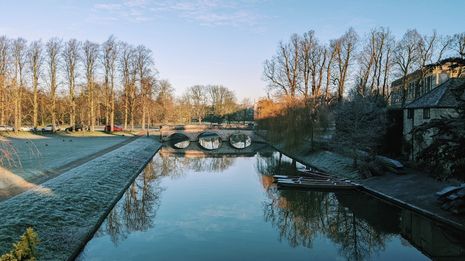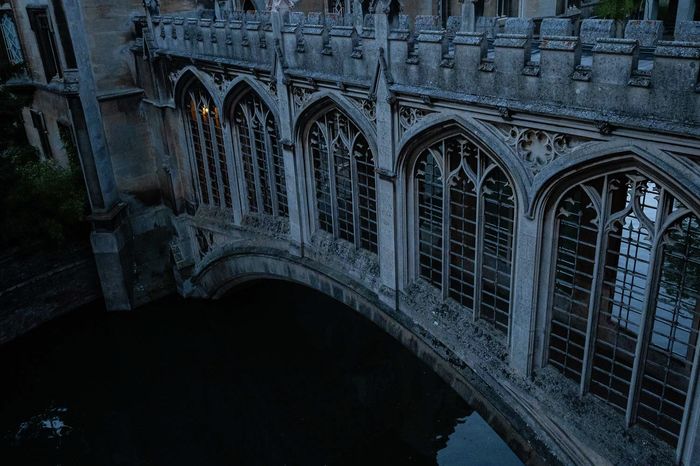Students can earn £100s from humorous poetry, living in Devon or reading in chapel
Organ Scholars bag the best prizes: at Jesus they receive £450 per year, free college feasts and reduced room rent

The number of different funds available to students at Cambridge can be bewildering. This was Varsity’s experience as we tried to establish which colleges provided bursaries for disadvantaged students. Investigating the esoteric funds available proved a far easier task.
The most valuable prize on offer is the King’s College Entrepreneurship Prize, established in 2014, which offers a top prize of £20,000 and a second prize of £10,000. Entrance is open to all King’s members, past and present. The finalists have to present in “Lyons Den,” named after the benefactor Stuart Lyons.
For the musically inclined, one of the most lucrative prizes up for grabs is open to Trinity students, who have the chance to win up to £1,680 for performing a libretto at Trinity’s May Week Concert.
Organists across the university are also in luck: the organ scholar at Homerton receives £450 a year alongside free Formal Hall and free international tours. Organ Scholars at Jesus also receive £450 per annum with free College Feasts, reduced room rent and an extra £1,250 per annum for organ and singing lessons.
Up to £960 is also on offer at Trinity for the Charles Grant Tennant Prize for light or humorous verse. Tennant, who was killed in the First World War, left Trinity ‘the sum of £350 to be invested, and the interest thereon to be devoted to an annual prize to be awarded to the writer of the best copy of light verse.’
At Queens’ students can receive £100 thanks to the Ryle Reading Prize, for the far less arduous task of reading in the college chapel.
Some of the most widely available funds are travel grants, with almost all colleges having funds available for students who are hoping to travel. We have collected a selection of the best for your perusal below:
Jesus College offers £300 for students hoping to travel to Greece after former Master of the College and classicist Sir Denys Page bequeathed funds in his will.
The Roger Chishold Fund at St John’s offers up to £750 to St Johns’ students ‘wishing to explore wild places by sea, climbing and/or hiking.’ Successful applicants are required to write a report for either the College Magazine, the Journal of the University Yacht Club or the Journal of the Cambridge Mountaineering Club.
At Darwin, three DarBar Grants of £200 are available. ‘Individuals awarded a DarBar Travel Grant are invited to have a drink in the bar before departure and to send the bar a postcard from their destination.’
Perhaps the most niche fund is the possible £300 on offer from the Devon Cambridge Society for undergraduates living in Devon to use for travel.
As in so many cases, what is most striking is the discrepancies between different colleges. Some offer multiple prizes many worth hundreds of pounds while others give out a relatively small amount to a handful of students.
St John’s students with lower-income are eligible for a top-up bursary of up to £7,630 on top of the Cambridge £3,500 bursary. A Varsity investigation in 2020 revealed that less than 40% of students accepted by St John’s came from a non-private or grammar school background.
Of the thirty-two colleges at Cambridge, only St Catharines, Churchill, Fitzwilliam, Magdalene, Pembroke, and St John’s have published easily available information about top-up bursaries.
 Features / Should I stay or should I go? Cambridge students and alumni reflect on how their memories stay with them15 December 2025
Features / Should I stay or should I go? Cambridge students and alumni reflect on how their memories stay with them15 December 2025 News / Cambridge study finds students learn better with notes than AI13 December 2025
News / Cambridge study finds students learn better with notes than AI13 December 2025 News / Dons warn PM about Vet School closure16 December 2025
News / Dons warn PM about Vet School closure16 December 2025 News / News In Brief: Michaelmas marriages, monogamous mammals, and messaging manipulation15 December 2025
News / News In Brief: Michaelmas marriages, monogamous mammals, and messaging manipulation15 December 2025 Comment / The magic of an eight-week term15 December 2025
Comment / The magic of an eight-week term15 December 2025









